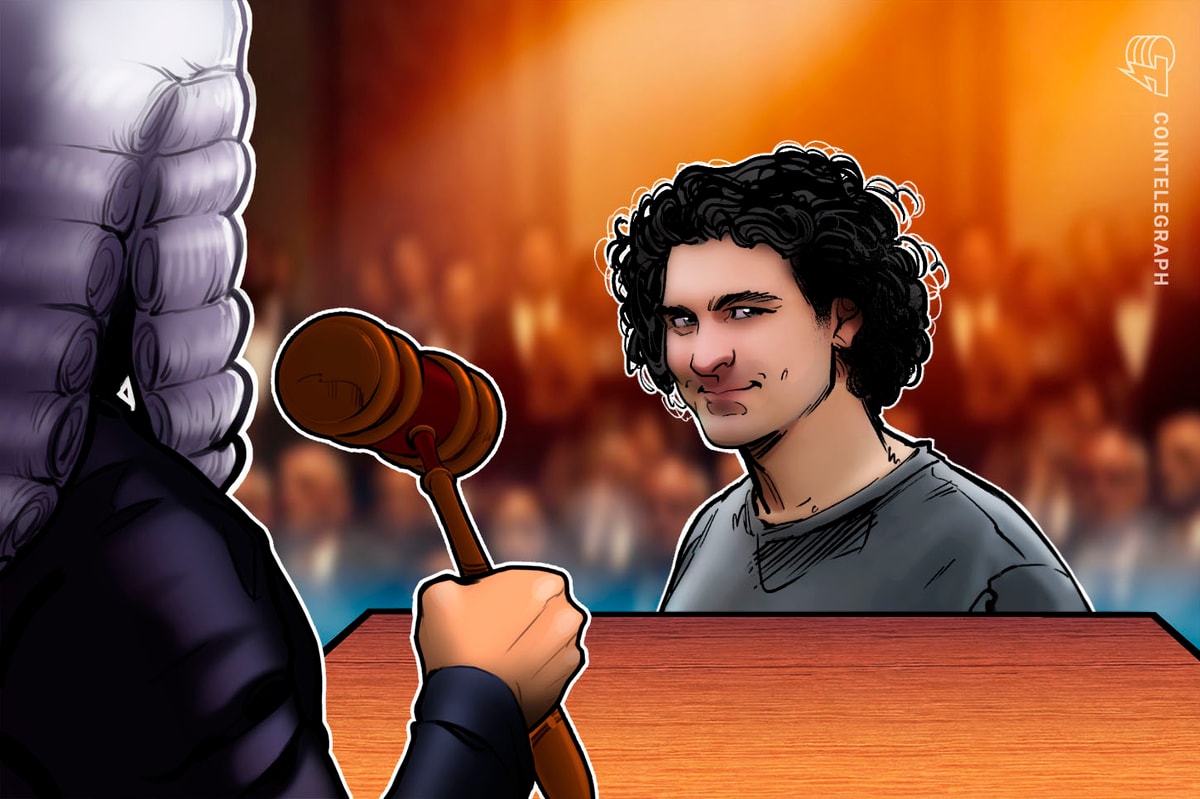Sam Bankman-Fried’s criminal trial could have been hurt because of his neurodivergence disorders, leading to “longwinded answers” that frustrated the court, says a group of doctors in an amicus brief supporting his appeal.
The FTX co-founder is diagnosed with autism spectrum disorder (ASD) and attention-deficit/hyperactivity disorder (ADHD) that “posed serious challenges during proceedings in this case,” eight doctors focused on the field of neurodivergence told the Second Circuit Appeals Court in a Sept. 20 amicus brief supporting Bankman-Fried.
They claimed several rulings were detrimental to Bankman-Fried “because of his neurodivergence,” in particular the Manhattan district court’s ruling that government prosecutors could cross-examine him without a jury before he sat before jurors.
This decision “had potentially profound effects” as “the judge repeatedly chided Mr. Bankman-Fried for his lengthy responses and for attempting to clarify or rephrase questions” — which the doctors said was characteristic of those with ASD as they understand language in a literal manner.
They also claimed the judge’s disciplining later caused Bankman-Fried to alter his responses before the jury.
“Mr. Bankman-Fried made a significant course-correction, potentially over-correction, before the jury,” they wrote.
“Unlike his responses on cross-examination outside the jury’s presence, Mr. Bankman-Fried’s responses before the jury often became extremely short, even clipped — often a simple ‘Yup.’”
Highlighted excerpt analyzing that Bankman-Fried gave one or two-word answers in half of his responses on his first day before the jury. Source: CourtListener
“Such clipped responses can easily be misinterpreted as arrogance, or indifference,” the brief stated.
In March, Bankman-Fried was sentenced to 25 years in jail for his role in defrauding FTX customers out of $11 billion, where Judge Lewis Kaplan said Bankman-Fried was “evasive, hair-splitting, trying to get the prosecutors to rephrase questions for him.”
Lack of documents, meds was a “serious handicap”
The doctors added that Bankman-Fried’s lack of access to “a range of FTX documents” and proper ADHD medication was also a detriment.
“For individuals with ASD, that absence of concrete documentation can be a serious handicap,” they said, adding that Bankman-Fried was also “denied ADHD medication necessary for him to have proper focus” in the first three weeks of the trial.
Bankman-Fried (second from right) at the Brooklyn Metropolitan Detention Center in December 2023, where he was housed during his trial. Source: Tiffany Fong
The doctors wrote that those with ASD “can find a concrete anchor for their responses” if they review “the specific documentation and the precise wording of corporate policies, advice, emails, etc.”
Without such documents, those with ASD could respond with answers “often encumbered by expressions of uncertainty,” which can appear “uncooperative or evasive,” the doctors said.
Bankman-Fried was also “denied the ability to focus” during the trial’s initial stages as the government was giving evidence because he was not given the proper doses of his ADHD medication — which his lawyers noted during the trial, the brief stated.
Bankman-Fried needed extended-release medication in the morning and at noon to properly focus throughout the day but was given half his previous dosage and wasn’t given extended-release medication “until well into trial,” the doctors said.
Highlighted excerpt of the doctors’ brief on Bankman-Fried’s medication at trial. Source: CourtListener
They added that a “failure to provide effective doses of ADHD medication can seriously affect functioning,” and altering his dosages could even “result in withdrawal symptoms.”
Criminal, bankruptcy case crossovers an issue: Filing
Meanwhile, a group of bankruptcy law professors filed an amicus brief the same day, neither supporting Bankman-Fried nor the government — raising concerns about the crossovers between FTX’s bankruptcy case and Bankman-Fried’s trial.
They argued that FTX’s bankruptcy proceedings offering assistance to Bankman-Fried’s prosecutors “sets a dangerous precedent, encouraging the aggressive use of Chapter 11 proceedings to support parallel criminal prosecutions.”
Related: Partner of ex-FTX exec pleads not guilty to campaign finance charges
The group said the FTX bankruptcy estate’s contributions to Bankman-Fried’s criminal trial were “extraordinary compared to previous cases,” citing those of Enron and WorldCom in the early 2000s.
Highlighted excerpt of the law professors’ brief claiming FTX bankruptcy lawyers have supported Bankman-Fried’s prosecution. Source: CourtListener
They added the speed of Bankman-Fried’s trial meant jurors were told: “repeatedly — and inaccurately — that customers would recover nothing from FTX.”
“Yet the defendant had no opportunity to present rebuttal evidence that the Debtors were never found to be insolvent or that FTX customers are in fact likely to receive almost 150% of their claims,” they said.
The FTX estate said in May it has enough to repay creditors plus “billions in compensation” — but for the value of the assets at the time of its bankruptcy in November 2022.
Magazine: The $2,500 doco about FTX collapse on Amazon Prime… with help from mom

